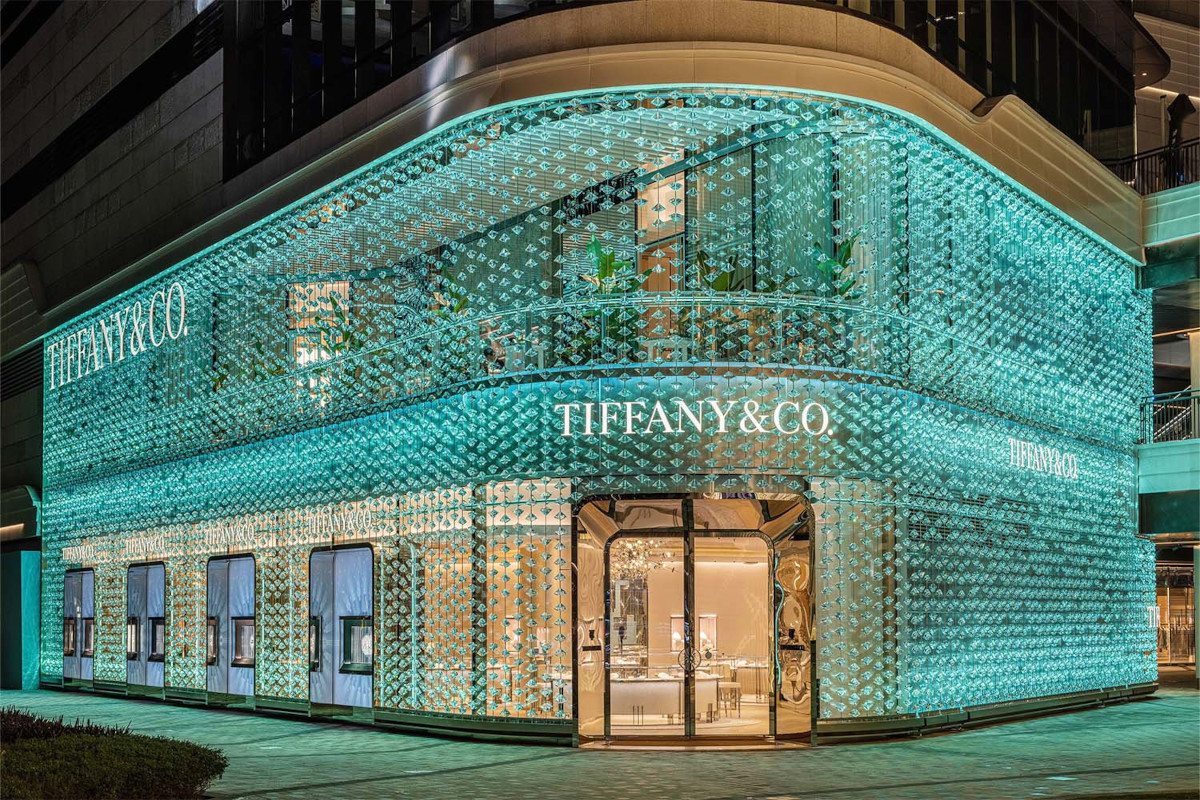Tiffany & Co., the legendary jewelry brand owned by LVMH, is facing major changes in the Chinese luxury market. Faced with declining sales of luxury goods in the world’s second-largest economy, the brand has decided to downsize its flagship store in Shanghai. The move is part of a broader strategy. It includes both a reorganization of existing locations and ambitious plans to expand its store network in China.
Tiffany & Co. in China. Changes at flagship Shanghai location.
Flagship store Tiffany & Co. in China, located in the prestigious Hong Kong Plaza, opened with great pomp in late 2019. At more than 12,000 square feet, the store was one of the largest in Asia. It attracted customers with exclusive jewelry collections and China’s first Blue Box Cafe. However, amid difficulties in the Chinese market, the brand has decided to give up half of the store’s space. The move may reflect a general slowdown in demand for luxury products.

However, the decision to downsize the Shanghai space does not mean a withdrawal from China. On the contrary, Tiffany & Co. plans to open new stores. This includes two flagship locations in Shanghai and Beijing, due to open in 2025. The brand still sees growth potential in this key market, despite the current challenges.
LVMH and challenges in the Asian market
The LVMH conglomerate, which owns Tiffany & Co. is facing a difficult Asian market. LVMH’s sales in the region, which includes China, fell 14% in the latest quarter. The company’s watch and jewelry segment reported a 3% year-on-year decline in revenue in the first half of 2024. As a result, it is one of the worst performing sectors in the entire group. The segment’s operating profit fell by as much as 19%. An important signal for investors.
Tiffany & Co. in China – is it taking a step in the right direction?
Tiffany & Co.’s decision to downsize flagship store in Shanghai can be seen as a strategic move to optimize costs and focus on more profitable locations. The brand is betting on growth in other parts of China. It is therefore counting on long-term benefits. This is an interesting decision for a dynamic market move.
China’s luxury goods market
It is worth noting that the luxury market in China, despite the current difficulties, still has huge growth potential. Although consumers are becoming more price-sensitive, which is affecting sales of luxury brands. Still, it is one of the most important luxury goods markets in the world.
Future prospects
Tiffany & Co. like other luxury brands is facing challenges from the current economic situation in China. The economic slowdown, the real estate slump and growing price sensitivity among consumers are all challenges. However, the long-term potential of the luxury goods market in China remains strong.
Tiffany & Co.’s step in China to downsize its flagship store in Shanghai while opening new locations in China can be seen as an attempt to strike a balance between cost optimization and continued growth. The brand tries to adapt its actions to the situation.
Luxury News Editor
Joanna Baran
Source: bloomberg.com
The company: Tiffany & Co.





